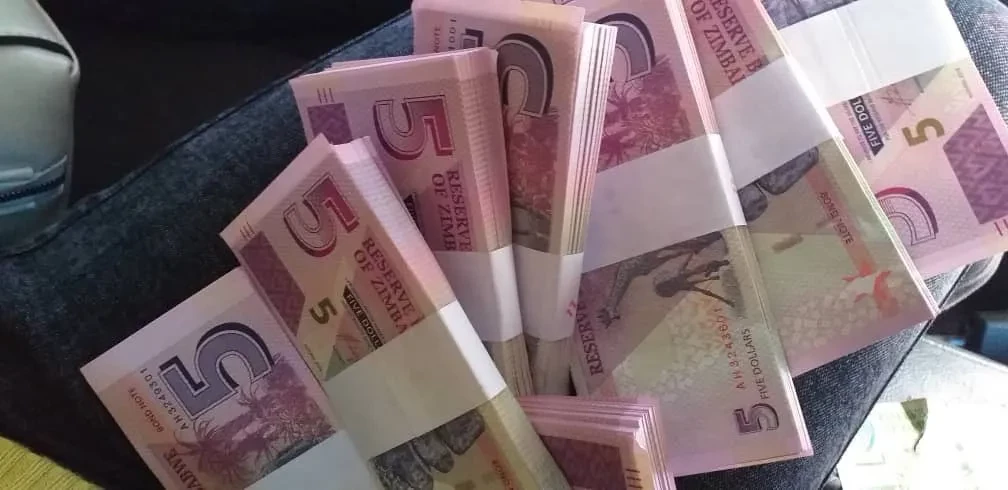
ZIMBABWE’S currency will continue depreciating in the coming months, as multiple headwinds exert pressure on the unit, which surrendered 34% of its value to the United States dollar in April, according to Inter Horizon Securities (IH).
Headwinds including rocketing prices and high money supply have pummelled the Zimbabwe dollar for five straight years, defying ad hoc measures announced at various intervals by authorities since 2019.
This was the year authorities returned the Zimbabwe dollar as the medium of exchange following a decade of dollarisation.
Government’s move, which was meant to ameliorate United States dollar shortages, which had vexed markets since 2015, triggered the rise of a stubborn foreign currency parallel market, which continues to push the economy to the brink. New moves to calm rioting markets were announced last week, when the Reserve Bank of Zimbabwe (RBZ) introduced a digital gold-backed currency.
But IH said the strategy could flop in the same way gold coins struggled to make a mark, following their introduction over a year ago.
“While the attraction for gold coins was the arbitrage presented when buying in local currency, the same can be said for the digital gold-backed coins giving incentive for players to willingly surrender their excess real time gross settlement system (RTGS),” IH said in its April equities research.
“In our view, there is, however, likely going to be a confidence issue with the digital gold coin lowering uptake of the product and hampering intended effectiveness of neutralising excess liquidity. In this regard, pressure on the Zimbabwe dollar in the short term is expected to sustain.
“While the economy is moving towards full dollarisation, there remains a niche of businesses such as formal supermarkets that are highly exposed to the local currency, thereby putting pressure on their earnings,” the report noted.
- To or not to deduct Aids Levy from VAT in Zim
- Charging school fees in forex unreasonable
- Stop meddling in PSMAS affairs
- Village Rhapsody: Zimbabwe’s currency merry-go – round continues
Keep Reading
A crackdown against the black market by the RRZ in October 2020 failed to push back illegal currency dealings.
According to IH, last month became one of the darkest phases of the ongoing meltdown, as the local currency struggled to hold ground. The parallel market premium widened from 65% at the beginning of the month to about 101% at the end of April, as the RTGS posted a double-digit decline for the third straight month within the year.
Last month, a report by FBC Securities said uncertainty over Zimbabwe’s growth prospects had seen the currency depreciating by 58% during the first quarter.
The drop was also a continuation of negative developments, which first appeared at the end of last year, when industrial capacity utilisation dropped to 56,1%, from 56,3% during the same period in 2021, according to official statistics.
The country’s three mobile telecoms firms saw subscribers slow by 1,8% to 14,3 million during the fourth quarter, from 14,5 million at the end of the third quarter.
The Insurance and Pensions Commission of Zimbabwe said in April that troubles were also seen in the sector, where 356 000 policies lapsed during the final three months of 2022.
It said two million more polices were in danger. Last week, authorities said the gold-backed tokens were fully backed by physical stocks of gold held by the central bank.
The minimum investing period has been set at 180 days.
The RBZ said the digital tokens will be held in either e-gold wallets or e-gold cards tradable also via person-to-person and person-to-business transactions and settlements. Holders of physical gold coins, at their discretion, will be able to exchange or convert, through the banking system, the physical gold coins into gold-backed digital tokens. In March 2023, the Treasury approved a 2023 remuneration framework for civil commissions, and the Parliament of Zimbabwe, and government pensioners, triggering the depreciation.
The local currency portion of salaries was increased by 100%.
“However, with the local currency depreciating by 34% in April alone, we are likely going to witness another salary review in the short-term,” IH said.







